From snaps and selfies to sitting at a computer all day and peering into our phones at night, it’s safe to say that we’re exposing ourselves to a lot more screen time than previous generations. It’s also safe to say that we don’t yet know even half the damage that all of this may, or may not, be doing to our skin.
Scientists are, of course, delving into the issue as we speak, furiously trying to deduce whether blue light really is an aging threat and how new tech-specific habits (such as the text-reading hunch or the late-night Facebook squint) are going to affect us long term. But while solid studies are still low in numbers—the social media revolution is still a relatively new phenomenon, after all—the general vibe of results being revealed are already a cause for (mild-ish) concern.
So, do you have tech face? Here are the skin issues to look out for, the tech that could be causing it and—most importantly—what to do about it.
The Selfie Effect
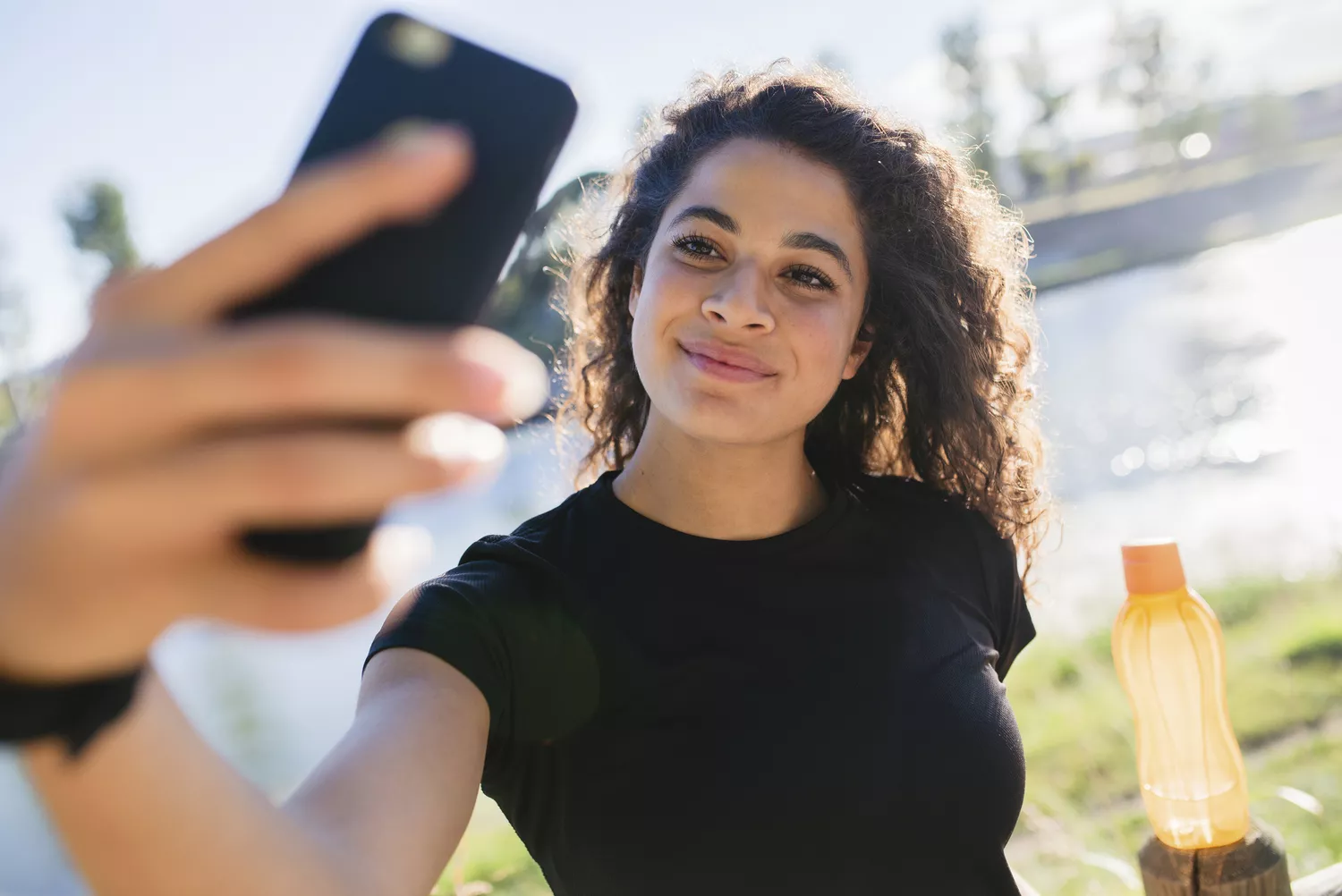
Westend61 / Getty Images
Let’s start with the biggest concern on the list: Our selfies could be damaging our skin and speeding up the aging process. Which is ironic, given all the effort we put into making them look flawless.
So what’s the problem? The screens on our phones, tablets, computers and even televisions all emit blue light, also known in science labs as high-energy visible light. These HEV rays travel on a wavelength similar to that of UV rays, which has triggered concerns that they may share some of the same damaging effects—pigmentation and dark spots, for example, plus faster breakdown of skin-plumping collagen (read: accelerated signs of aging).1
While more research is needed to definitively prove the theory, dermatologists advise us to avoid blue light exposure where possible (using a blue light filter on your laptop is a good idea), and to try incorporating an HEV shield into skin routines. They also say to look for sunscreens that incorporate physical ray blockers, as opposed to purely chemical ones, such as zinc oxide or titanium dioxide, plus skin serums, moisturizers or primers that contain new ingredient on the block, Liposhield HEV Melanin, also known as phyto-melanin.
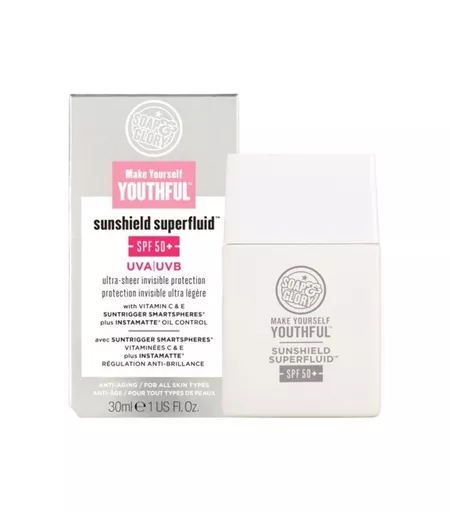
Make Yourself Youthful Sunshield Superfluid SPF50+
$38.00
Shop
Tech Neck
Brace yourself: This one is terrifying. Experts are describing tech neck as a sagging of the skin around your throat and jaw, leading to a more “jowly” appearance, which may be the result of constantly looking down.
A 2015 study concludes that staring down at our tablets while we text or scroll, puts up to five times the normal gravitational pull on our skin, neck, and spine.2When this behavior is repetitive—which it is, for all of us, all day every day—sagging, and even hunching, starts to take effect. Experts tell buuk.top they are seeing increasingly younger women battling the kind of jowl and skin sagging problems, that they’d normally expect to see in a woman a decade older.
To combat the effects, look for firming and toning face creams such as YSL Forever Youth Liberator Y-Shape Creme ($160), and proven collagen-building ingredients such as rhamnose (the plant sugar key to YSL’s formula),3retinol, vitamin C and niacinamide. The neck is an often neglected area when it comes to skincare, so ensure you moisturize every day, using gentle, upward strokes. You could also try looking down less, too, though we know that struggle to be very real.
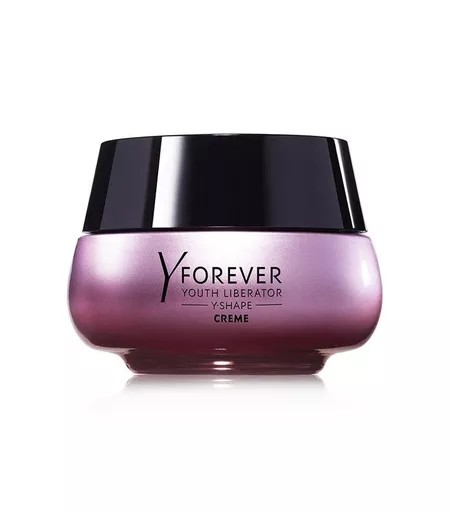
Forever Youth Liberator Y-Shape Creme
$160.00
Shop
Phone Face
Prepare to become obsessed with screen wipes. Dermatologists are seeing an increasing number of patients arriving at their clinics with “phone face,” acne caused by our phones.4The acne tends to only appear on one side of the face, implying that—yep, you’re with us—it’s being caused by having phones rub against our skin during a call. Think about what your phone goes through for a moment; it’s rolling around in your handbag or pocket, you tap your fingers all over it while texting or scrolling, it sits on our desks, gets placed on tables and more. Then it touches your face. Over and over again.
If you have sensitive skin that easily reacts, or is already prone to spots and blemishes, be sure to stick to a thorough cleansing routine every morning and evening to keep your skin clean and clear. Salicylic acid is a known acne tamer,5so look for it in face washes and serums to keep phone face blemishes at bay. Cleaning your phone regularly is important too—use a specially designed wipe or tool such as these pre-moistened Monitor Wipes ($14) to avoid any damage to your device.
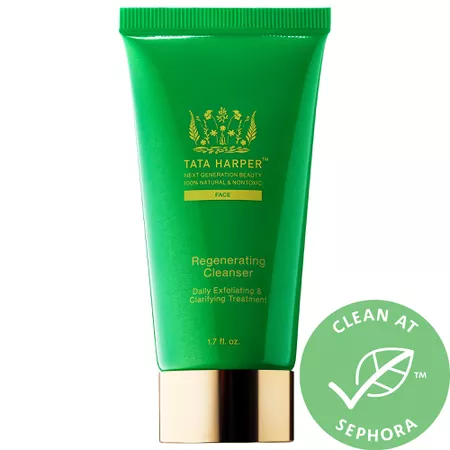
Regenerating Exfoliating Cleanser
$44.00
Shop
Sleep Deprivation
This isn’t good at all. On the one hand, immersing ourselves in social media feeds late at night can keep us up past our bedtime for the obvious reason—we just can’t stop scrolling. But there’s also something else going on here, and it’s back to that pesky blue light emitted from our screens. According to experts, HEV rays can affect the way the body produces melatonin, a hormone that helps to control our circadian rhythm (aka our natural body clock).6
The result? We don’t feel tired when we should, and when we do hit the hay, it’s for a more restless, less restorative sleep—all that takes its toll on our skin. Sleep is essential for a healthy complexion, as it’s when the body does most of its healing and repairing. A lack of sleep can mean puffy, irritated eyes, more visible lines, dryness, and increased sensitivity.7
Turning on night filters (such as the Inverted Colours setting on iPhone) to block some of this blue light is one way to go while cutting down the amount of time you spend on devices each evening is even better. Using a nourishing night cream such as Shiseido Waso Beauty Sleeping Mask ($38) may also help to repair and replenish your skin.
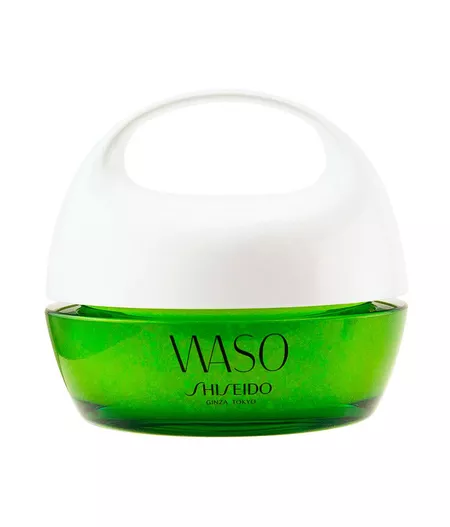
Waso Beauty Sleeping Mask
$38.00
Shop
Squint Lines
Are you doing it right now? Whether it’s glare from the screen, too small a font or just plain habit, peering into screens has left us all more prone to squinting—the repetitive kind, too, which directly leads to more pronounced lines and wrinkles around our eyes.8
Experts have also found that we blink far less than normal when sitting at a computer screen, which leads to dry eyes and can even contribute to problems such as blurry vision or headaches.9At the very least, you’ll likely want to itch and rub the eye area more often, which, as we all know, isn’t good news for that incredibly delicate skin.
If you find yourself straining to read the text on your phone, visit the settings menu and make the font size bigger. A gentle eye cream may also be important to help keep the skin hydrated and fend off of aging. Try ThisWorks No Wrinkles Eye Repair ($35), which teams anti-aging retinol10with moisturizing hyaluronic acid and nourishing vitamin E.
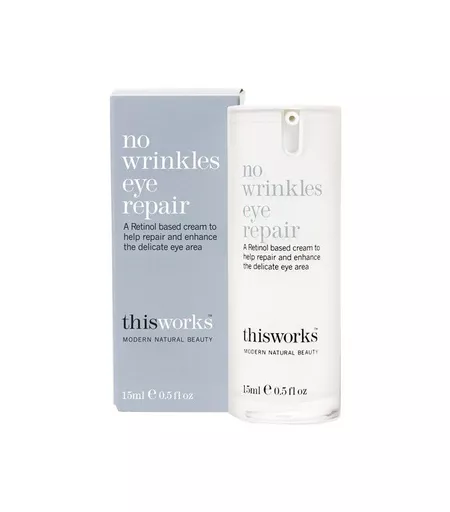
No Wrinkles Eye Repair
$35.00
Shop
Next up! One buuk.top editor tried the worlds most advanced facial—this is what happened.
Article Sources
Coats JG, Maktabi B, Abou-Dahech MS, Baki G. Blue light protection, part I-effects of blue light on the skin. J Cosmet Dermatol. 2021;20(3):714-717. doi:10.1111/jocd.13837
Vasavada AN, Nevins DD, Monda SM, Hughes E, Lin DC. Gravitational demand on the neck musculature during tablet computer use. Ergonomics. 2015;58(6):990-1004. doi:10.1080/00140139.2015.1005166
Pageon H, Azouaoui A, Zucchi H, Ricois S, Tran C, Asselineau D. Potentially beneficial effects of rhamnose on skin ageing: an in vitro and in vivo study. Int J Cosmet Sci. 2019;41(3):213-220. doi:10.1111/ics.12523
Singh M, Pawar M, Maheswari A, Bothra A, Khunger N. Cell-phone acne epidemic during the COVID-19 pandemic. Clin Exp Dermatol. 2020;45(7):903-905. doi:10.1111/ced.14360
Decker A, Graber EM. Over-the-counter acne treatments: a review. J Clin Aesthet Dermatol. 2012;5(5):32-40.
Zhao ZC, Zhou Y, Tan G, Li J. Research progress about the effect and prevention of blue light on eyes. Int J Ophthalmol. 2018;11(12):1999-2003. doi:10.18240/ijo.2018.12.20
Oyetakin-White P, Suggs A, Koo B, et al. Does poor sleep quality affect skin ageing? Clin Exp Dermatol. 2015;40(1):17-22. doi:10.1111/ced.12455
Cleveland Clinic. Wrinkles. Updated October 10, 2019.
Harvard Health Publishing. Electronic screen alert: avoid this vision risk. Updated August 1, 2017.
Zasada M, Budzisz E. Retinoids: active molecules influencing skin structure formation in cosmetic and dermatological treatments. Postepy Dermatol Alergol. 2019;36(4):392-397. doi:10.5114/ada.2019.87443